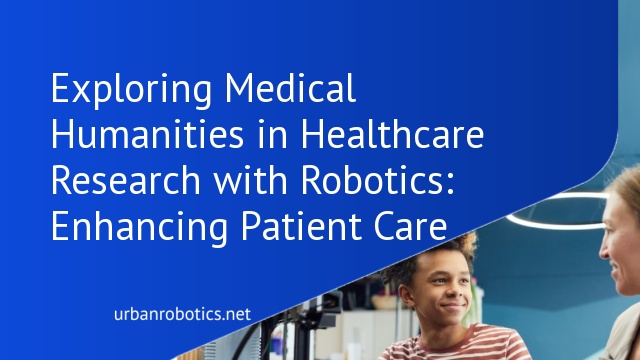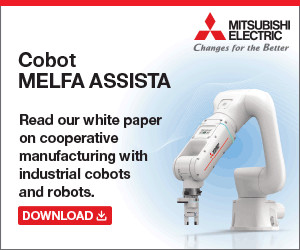Understanding Medical Humanities
Medical humanities examine how aspects like ethics, culture, and emotions influence healthcare. This interdisciplinary field integrates insights from literature, philosophy, and history to foster a holistic approach to medicine. By engaging with these dimensions, we gain deeper empathy and enhance our ability to understand patient experiences.
Ethics play a pivotal role in medical humanities. Issues like patient consent, autonomy, and justice are explored to ensure patient-centered care. For example, understanding cultural differences can improve communication between healthcare providers and patients. This leads to more accurate diagnoses and improved patient satisfaction.
Arts and literature offer unique perspectives on illness and healing. They help us comprehend the emotional landscapes of patients. By incorporating these insights, we create more empathetic healthcare environments. For instance, narrative medicine uses storytelling to strengthen doctor-patient relationships.
Historical context enriches our understanding of medical practices. It highlights the evolution of medical ethics and patient care. By learning from past mistakes and successes, we can develop better healthcare strategies.
Medical humanities not only nurture compassionate caregivers but also inform the design of humane and effective technologies in healthcare.
The Intersection of Robotics and Healthcare
Robotics technology is transforming healthcare, enhancing precision in medical procedures and improving patient outcomes. Let’s explore these advancements and their ethical implications.
The Role of Robotics in Modern Medicine
Robots perform tasks with exceptional precision, mitigating human error in surgeries and diagnostics. For example, surgical robots allow for minimally invasive procedures, resulting in faster recovery times and reduced complications. Additionally, robots assist in repetitive tasks like medication dispensing and patient monitoring, ensuring consistency. These contributions enhance healthcare efficiency and effectiveness, revolutionizing patient care.
Ethical Considerations in Robotic Healthcare
Robotic integration raises ethical questions regarding patient consent and data privacy. For instance, ensuring informed consent when using robots in surgery is crucial because patients must understand risks and benefits. Data security is another concern; robots often collect sensitive health information, necessitating robust safeguards to prevent breaches. Addressing these ethical issues is vital to maintaining trust in robotic healthcare advancements.
Contribution of Medical Humanities to Robotics Research
Medical humanities contribute significantly to the integration of robotics in healthcare by providing a human-centered approach.
Enhancing Patient-Centered Care
Medical humanities enhance patient-centered care by integrating empathy and communication into robotic systems. One critical aspect is developing robots that can understand and respond to patient emotions, improving patient interactions. For example, robots designed with empathetic algorithms can offer emotional support during recovery or treatment, making the patient experience more comforting. Additionally, incorporating narrative medicine principles, such as listening to patients’ stories, helps tailor robotic interventions to individual needs, ensuring more personalized care.
Addressing Ethical and Social Implications
Medical humanities address ethical and social implications associated with robotics in healthcare. One major area is ensuring that robotic systems respect patient autonomy and foster trust. Ethical frameworks derived from medical humanities guide the creation of robots that prioritize patient rights and consent. For example, designing robots to handle only anonymized data helps protect patient privacy. Socially, these frameworks ensure equitable access to robotic healthcare, making sure innovations benefit diverse populations. By grounding robotic development in ethical principles, we enhance the moral integrity of healthcare technology.
Case Studies in Robotic Healthcare
Examining case studies in robotic healthcare reveals the profound impact of integrating medical humanities with robotics. Both successful implementations and challenges shed light on best practices and lessons learned.
Successful Integrations
Several healthcare institutions have successfully integrated robotics with medical humanities. For instance, Cedars-Sinai Medical Center uses robotic surgical systems enhanced by patient-centered approaches from medical humanities. The Da Vinci Surgical System, utilized by surgeons, improved patient outcomes while maintaining empathy and communication. At the University of Texas, a program combining robotic-assisted therapy with narrative medicine has shown significant improvements in patient-reported satisfaction and emotional well-being.
Challenges and Lessons Learned
Despite successes, integrating robotics in healthcare poses challenges. A notable case at Massachusetts General Hospital faced initial resistance from staff due to fear of job displacement, highlighting the need for comprehensive training and communication strategies. Ethical concerns also arose in a case where autonomous robots conducted patient rounds, stressing the importance of maintaining a balance between efficiency and personalized care. These cases underscore the necessity of addressing ethical, emotional, and social dimensions to ensure harmonious integration of robotics in healthcare.
Future Directions
Exploring future directions, we foresee significant advancements in medical humanities and robotics. Combining ethical frameworks with cutting-edge technology, these fields will evolve to meet growing healthcare demands.
Enhanced Patient-Interaction Robotics: Integrating AI into robotics, focusing on empathy, can revolutionize patient interactions. Studies suggest AI-driven robots, such as chatbots and virtual assistants, can address patient concerns empathetically while offering precise information.
Personalized Medicine: Robotics can tailor treatments to individual patients, leveraging data analytics. By incorporating patient histories and preferences, treatment plans become more effective and personalized.
Interdisciplinary Training Programs: Implementing training programs that blend medical humanities and robotics can prepare healthcare professionals for future challenges. Courses could include ethics in AI, compassionate care, and technical robotics skills.
Remote Care: Robotics and telehealth can expand access to care in underserved areas. Using robotics for remote surgeries and patient monitoring can revolutionize healthcare delivery.
AI and Ethics Integration: Developing robust ethical guidelines for AI in healthcare is essential. Collaborating with ethicists, we can create frameworks ensuring patient data privacy and consent.
Research Collaborations: Encouraging collaborations between technologists and humanities scholars can foster innovative solutions. Joint research can address complex healthcare challenges by combining technical expertise with humanistic insights.
Conclusion
By merging medical humanities with robotics in healthcare we’re paving the way for a more compassionate and efficient medical environment. This synergy not only enhances patient care but also strengthens the ethical framework within which advanced technologies operate. As we move forward the integration of AI-driven empathy and personalized treatment plans will become even more critical.
Interdisciplinary training programs will ensure healthcare professionals are well-equipped to handle the evolving landscape. With ongoing research collaborations and the development of ethical guidelines the future of healthcare looks promising. Let’s continue to embrace this holistic approach to meet the growing demands and complexities of modern medicine.





